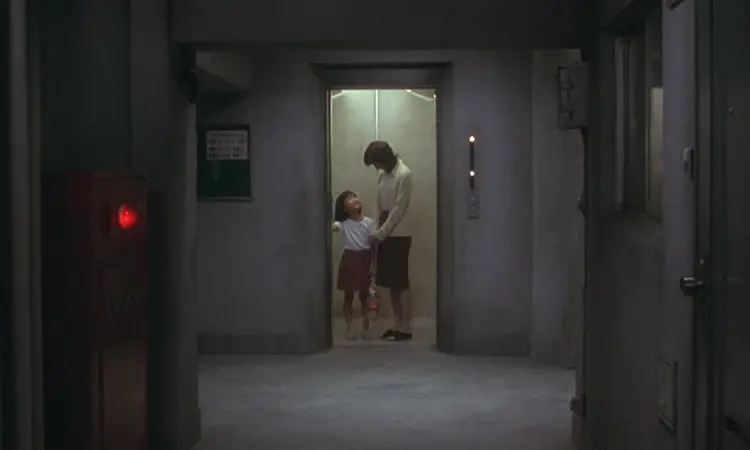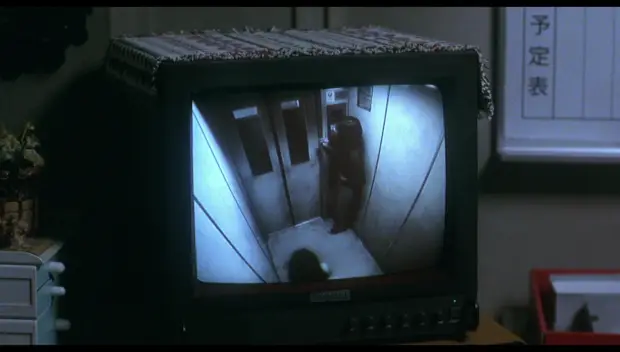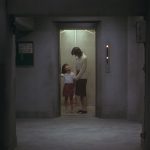Full Circle Flashback: ‘Dark Water’ (2002) Review

The early 2000s were home to numerous low budget Japanese horror gems that went on to define the genre. Ringu and Ju-On: The Grudge are certainly the most remembered, but there’s another great that deserves a chance to shine: Hideo Nakata’s Dark Water (not to be confused with the 2005 American remake or the more recent Dark Waters with Mark Ruffalo).
Dark Water follows Yoshimi Matsubara, a woman in the midst of an ugly divorce. She moves into a run-down apartment with her daughter Ikuko, and enrolls her in a nearby elementary school. A leak in the ceiling sets off a chain of supernatural events. As the leak worsens, so does the torment inflicted upon Yoshimi and her daughter. Despite the supernatural elements (or perhaps because of them), Yoshimi and Ikuko are consistently the emotional core of the film.
Early in the film, one of her ex-husband’s lawyers mentions a time when Yoshimi was hospitalized due to “mental instability”. She explains that it happened before Ikuko’s birth, back when she worked as a copy editor. She had to read books with horrific content over and over again and suffered a mental breakdown as a result. It’s the only time the film mentions her past struggles with mental health, yet it hangs over the rest of the film like a dark cloud.
As her paranoia deepens and she behaves more erratically, I still found it hard to believe that she could have conjured up this supernatural ordeal herself. Rather, the film’s inclusion of her earlier mental break serves not to discredit her or suggest everything is happening in her head, but to show her sensitivity to horrific events… such as the disappearance of a little girl who went to Ikuko’s kindergarten and lived in the apartment above her.
READ: Full Circle Flashback: ‘Donnie Darko’ Spoiler Review
While watching, Hitomi Kuroki’s performance as Yoshimi struck me. She evokes Shelly Duvall’s Wendy Torrance: a woman on the precipice of madness, fearful of the chaos around her and fiercely devoted to protecting her child. I wondered at first if the parallels to The Shining were simply in my head. But sure enough, in the penultimate moment of the film, the apartment’s elevator doors part and torrents of black water rush out, engulfing Ikuko and establishing The Shining‘s influence.
In addition to Yoshimi’s characterization, Junichiro Hayashi’s camerawork creates the perfect cage for the trapped family. The cinematography gives the apartment building the feeling of a mausoleum: large, grey, and hauntingly empty. The building is seemingly void of other tenants, as we really only see Yoshimi and Ikuko wandering the halls. The images are so stark, but so sinister, that even a single drop of water seems terrifying.
I only have one minor qualm with the film, and that is Koshida, Yoshimi’s lawyer. He is introduced about halfway through the film, urging Yoshimi to show strength in the face of madness in order to keep custody of Ikuko. He helps her by pushing the lazy building manager to fix the leak, and generally encouraging her to have hope. However, his addition feels too little too late. By the time he came around, I was more concerned with the physical safety of Yoshimi and Ikuko than I was the outcome of the custody battle. By the end, it’s clear that Koshida ended up not doing much of anything at all anyway.
Dark Water is a horror film about a mother desperate to prove herself a worthy caregiver to her daughter. The ending of the film shows this in a beautiful way: that even though the outcome was different from the goal, Yoshimi proved her love for her daughter tenfold. If you’re seeking a quiet, emotional horror film, then I cannot recommend Dark Water enough. Just don’t forget your umbrella.




